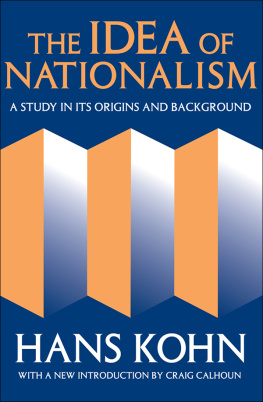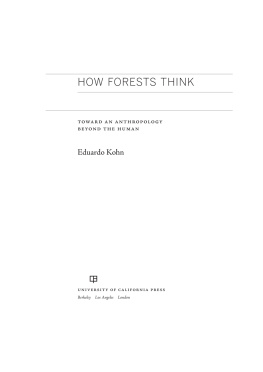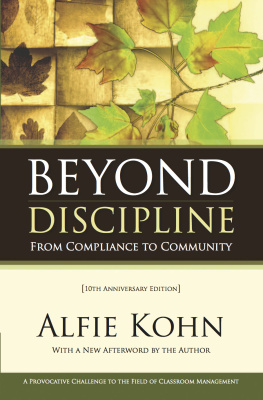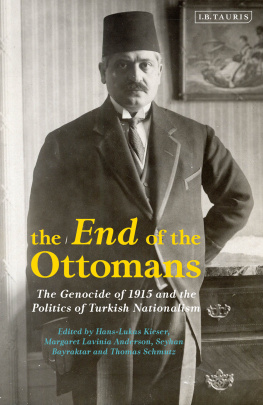Originally published in 1944 by The Macmillan Company
Published 2005 by Transaction Publishers
Published 2017 by Routledge
2 Park Square, Milton Park, Abingdon, Oxon 0X14 4RN
711 Third Avenue, New York, NY 10017, USA
Routledge is an imprint of the Taylor & Francis Group, an informa business
New material this edition Copyright 2005 by Taylor & Francis.
All rights reserved. No part of this book may be reprinted or reproduced or utilised in any form or by any electronic, mechanical, or other means, now known or hereafter invented, including photocopying and recording, or in any information storage or retrieval system, without permission in writing from the publishers.
Notice:
Product or corporate names may be trademarks or registered trademarks, and are used only for identification and explanation without intent to infringe.
Library of Congress Catalog Number: 2005043949
Library of Congress Cataloging-in-Publication Data
Kohn, Hans, 1891-1971.
The idea of nationalism : a study in its origins and background / Hans Kohn ; with a new introduction by Craig Calhoun,
p. cm.
Originally published: New York : Macmillan, 1944.
Includes bibliographical references and index.
ISBN 978-1-4128-0476-9 (alk. paper)
1. Nationalism. I. Calhoun, Craig J., 1952- II. Title.
JC311.K567 2005
320.54*09 dc22
2005043949
ISBN 13: 978-1-4128-0476-9 (pbk)
TO YETTY AND IMMANUEL
Contents
CHAPTERS
Introduction to the Transaction Edition
The contrast of civic to ethnic nationalism, liberal to organic, Western to Eastern is so habitual today that it is hard to recall that it was invented. Like nationalism itself, it seems almost natural, a reflection of reality rather than a construction of it. But while the distinction does grasp important aspects of modern history and contemporary politics, it does so in a specific way, shaping evaluations and perceptions, reinforcing some political projects and prejudicing thinkers against others. And it was invented. Hans Kohn was the most influential source of both the opposition of civic to ethnic nationalisms and of its association with a parallel opposition between Western and Eastern versions of modernity. The Idea of Nationalism is the most important statement of Kohns view, and it occupies a central place amid his voluminous writings as the main general statement of his mature perspective. It is of interest not only because Kohn was an important scholar and public intellectual, and because his contrast of civic and ethnic nationalisms has been deeply influential, but also because his book is an enlightening window onto the more general relationship between liberalism and nationalism.
The Idea of Nationalism has, in one sense, an odd organization. After a general introduction to the nature of nationalism, Kohn traces the development of the idea of nationalism in Western history, from Israel and Hellas through Rome, the Middle Ages, the Renaissance, and the Reformation to the late eighteenth-century emergence of fully developed modern nationalism:
The continental Europe of the seventeenth century and of the first half of the eighteenth still lived in the prenationalistic age. But in the growth of centralized states, in the secularization of political life, in the rise of individualism with its faith in liberty and its confidence in mans power, with the acceleration of economic life demanding the loosening of the static forms of traditional organization the foundations were laid for the rise of nationalism, (p. 204)
France took the lead on the European continent, though Kohn acknowledges that Englands seventeenth-century revolution was not just a precursor but the first real flowering of modern nationalism. The American and French revolutions were pivotal, crowning the Age of Enlightenment. The story of nationalism is thus embedded in an account of the development of Western civilization. The account culminates with the production of a new kind of liberal universalism and appropriate political structures for this by means of revolution, transformation of absolutist monarchies, and creation of new countries in the new world. Modern civilization was molded into its definite form in the eighteenth century (p. 215). Then there are two chapters on Stirrings in the Old World tracing developments in Central and Eastern Europe. These start out promising cultural revitalization but end up anti-modern or at least reactionary.
Kohn initially planned to write a second volume. This would have extended the discussion of Europe further into the nineteenth century and added more on nationalisms which developed elsewhere on into the twentieth century. He never did, though he published numerous studies of later European nationalism and nationalism in Asia, Africa, and elsewhere. But in a sense the very omission is telling. His story of nationalism is a story of liberal achievement and an illiberal challenge to it. It is a story in which the West represented principally by England, France, and the United States represents the universal and the rest of the world, frequently identified with the East, represents innumerable particularisms. But it is also a story that refuses to cede nationalism to mere backwardness, atavistic loyalties, or traditionalism.
The idea of nationalism, in Kohns view, developed specifically in the West as part of the pursuit of a social order based on reason and universal justice. It was central to liberalism and liberalism central to it until it was appropriated and transformed, mainly in the East, by Romantics, traditionalists, mystical irrationalists, and those pursuing a different raison dtat governed not by universal ideals but by the desire to claim an equal or even dominant place in the world remade by the West. But the good, liberal version of nationalism was not irrevocably lost, Kohn suggested; it could be recovered, claimed by Western Europe and the US, and even potentially spread throughout the world as part of the Wests gift to humankind. Liberal nationalism could still serve as a valuable step on the path to cosmopolitan global integration. As Kohn ended The Idea of Nationalism, summing up its message:
From Hebrew and Greek ideas the age of nationalism drew many of its initial and fundamental inspirations, but from Jerusalem and Athens shine also the eternal guiding stars which lift the age of nationalism above itself, pointing forward on the road to deeper liberty and to higher forms of integration, (p. 576)
Greece and Israel are the crucial sources of the Western inheritance of universalism, humanism, reason, and liberty: It is significant that in antiquity only the two nationally conscious peoples developed a conscious cosmopolitanism and universalism (p. 36).
Kohns story of the idea of nationalism, in other words, is situated in the heroic version of the story of the rise of Western civilization and its gift to the world of Classical, Judeo-Christian, and Enlightenment versions of reasoned universalism. It is as much an account of the flourishing and importance of liberalism as a study of nationalism. But it is not simply triumphal. Though Kohn seems to have been of generally optimistic character, and found reasons for hope not always apparent to his contemporaries,












